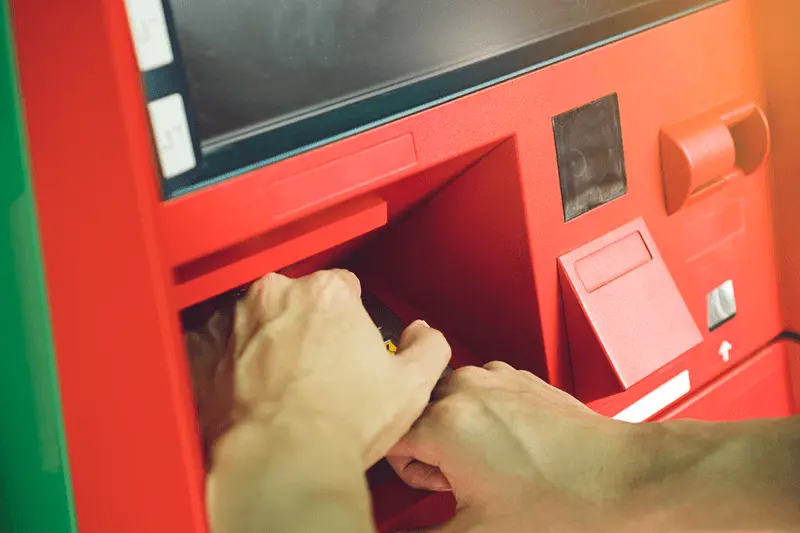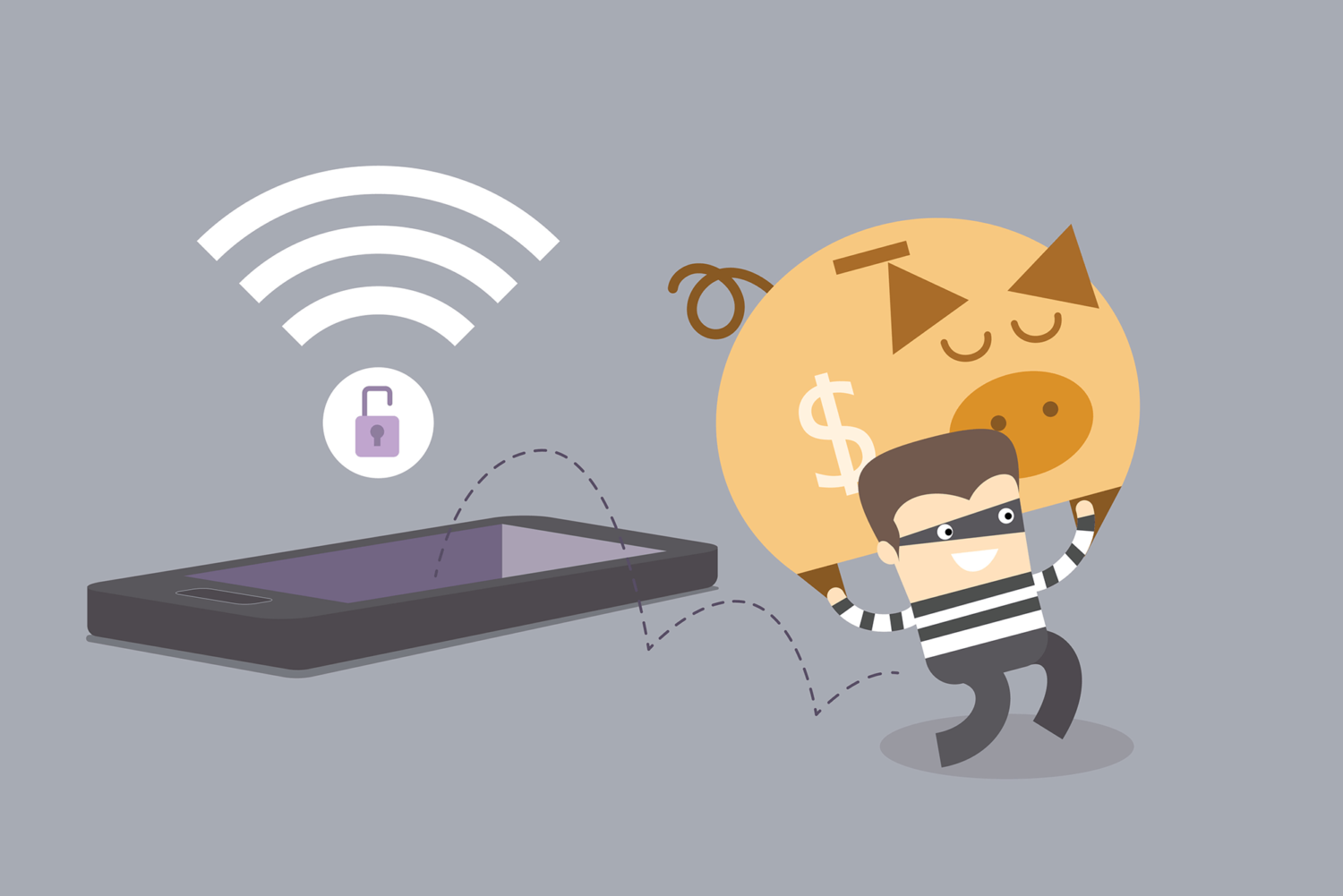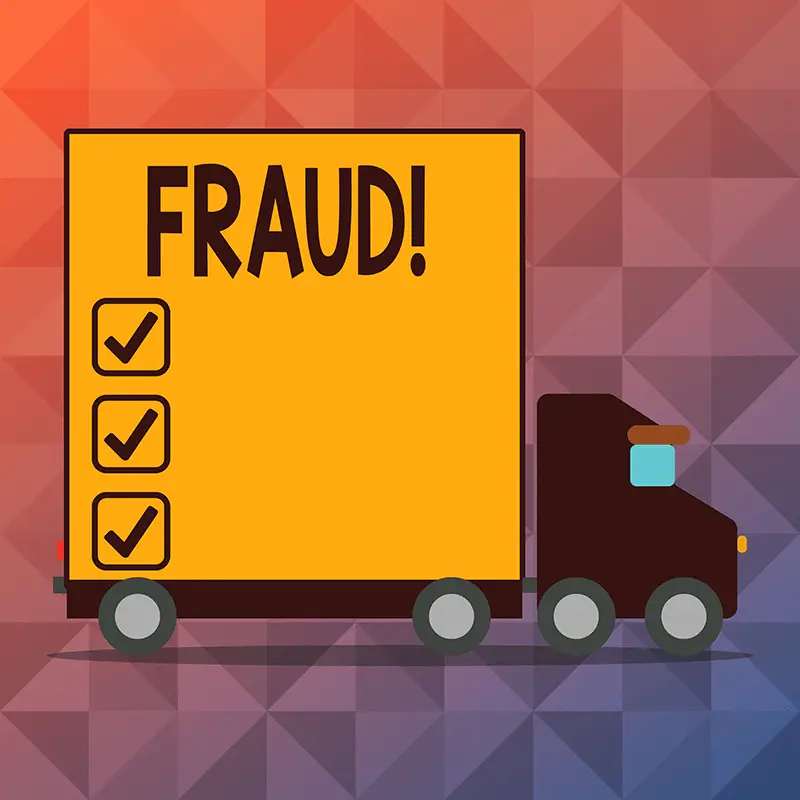Identity theft within the trucking and commercial fleet industry has been a thorn in the side of organizations for decades. This article will discuss the new and old techniques thieves are using to steal your personal information while you are out on the road as well as tips to help prevent massive losses to your organization from carrier theft. This way you will be familiar with what to look out for during your shipments.
Common Identity Theft within Fleet and Trucking
Debit and Credit Card Skimming: Thieves commonly replace fuel card/debit card scanners with their own mechanisms on fuel pumps at popular truck stops. The “skimmers” as they are called replace or cover up the old reader and look exactly like the original. Once you slide your card into the fuel pump, the skimmer will read your card information and communicate with a server that stores your personal information. Since your debit card requires a 4-digit pin, usually an additional “PIN capture overlay device” is placed on top of the original keypad to coincide with the attached skimmer.Thieves will also use a small hidden camera that records the numbers you press after your card is scanned.

How to Prevent Card Skimming: When you first approach the fuel pump, look at both the card reader as well as the keypad. If any of these items seem loose or out of place, do not put your card inside the machine. Usually these skimming machines will pop off or come out when you attempt to wiggle them from side to side. Another item to pay attention to is the security seal on the fuel pump, usually if one has been opened or tampered with, the security seal sticker will be broken or out of place.
- Pay with cash when stopping for fuel.
- Use a fuel card instead of your personal debit/credit card.
- Cover your hands when entering your PIN on the keypad.
- Be aware of your surroundings and look for signs of tampering or strangers watching you enter your pin.
- Do not leave your personal passwords or PIN numbers in your wallet with your debit or credit card just in case your wallet is lost or stolen.
Additional information: Skimmers can also be used at ATMs and parking lot payment kiosks.
Public Wireless Network Theft (Wifi): When you connect your computer or phone to a public wireless network, thieves have ways of monitoring each device connected. With simple software, they will be able to identify which websites you are surfing as well as which keyboard strokes you are typing. This means that if you login to your bank accounts or other personal sites while connected to the public network, you could be giving away valuable information to strangers.

How to Prevent Wifi Theft: When you are visiting different locations throughout your trip, notice if any of the public networks you are using require a password from the place of business. If the public network is not password protected, then it makes it easier for thieves to monitor the network for longer periods of time.
- Do not visit any of your banking websites while on a public network.
- Do not log on to your personal social media websites.
- Do not type any passwords or usernames on any device while using public wifi.
- Do not touch any random popups you receive while using this network..
Mailbox Theft: When thieves figure out your schedule and realize you will be out on the road for weeks at a time, they will simply steal mail directly from your mailbox. This means bank statements, credit card information, and other personal items that could help them steal your identity. Thieves will use the personal information from your mail and attempt to pose as you when calling your bank, writing a check, or taking out loans/credit cards in your name.
How to Prevent Mailbox Theft: Follow these steps to prevent your credit score from being permanently or extensively damaged. Be sure to be aware of what you throw in the garbage as well, thieves have been known to sift through trash to find personal information as well as from your mailbox.
- Have a neighbor or someone you trust pickup your mail while you are out on the road.
- Call your post office and fill out a “Hold Mail’ while you are going to be out of town. They will hold delivery of your mail for up to 30 days.
- Shred Papers with sensitive information before placing in the trash.
Less Common Theft Within Fleet and Trucking
ID Scanning: Usually when you are out to pickup a load during your trip, you are asked to present you state ID to be copied and kept on file by the shipper. This is not uncommon practice and helps them keep track of which driver is carrying their shipment. Look out for people working in some of these organizations and how they handle your commercial driver’s license. Are they taking it to a back office out of your view? Do they have their cell phone out and seem to be taking pictures or scanning your ID?
How to Prevent ID Scanning: It may be difficult to address certain problems with how your ID is handled by the shipper. Be nice and courteous to them without any accusations, but simply express your concerns to why you don’t want your ID taken out of view.
- Keep track of who copies your commercial driver’s license. Write down their name and which organization they work for. It will help you identify the source if fraud is apparent in the future.
- Do not let anyone scan your ID with their cell phone.
- Do not let anyone take your ID out of your sight, they should be able to copy it with you watching.
Cargo Theft: Thieves are getting clever when it comes to identity theft. Once they use the above techniques to steal your identity, they will sometimes pose as you and pickup shipments in your name. Once they haul off with the shipment, they steal the entire load. They can also call and collect payment of shipments you have made. This can be a very stressful experience and could lead to you being responsible for replacing or purchasing the entire shipment yourself. Regardless of your fault or not, your organization will lose credibility and possibly be put out of business. Retrieving your DOT number along with your commercial driver’s license could allow them to sign into your accounts online (FMCSA for example) and grab more personal information from you.

How to Prevent Cargo Theft: The good news about preventing cargo theft is that technology has drastically increased the security for each shipment. With ELDs and GPS tech being built into your system, shippers and carriers can track the correct shipment with the correct driver more efficiently.
- Make sure shippers and receivers are checking your DOT number along with your commercial driver’s license. The number should match on your truck.
- Make sure your software is up to date for your specific ELD and GPS.
- Never leave your truck unattended without locking the doors
- Be aware of your surroundings and make note of any suspicious activity
- Create a PIN number system that changes daily as a second line of defense when delivering and receiving shipments. Usually this is a multi-digit code that relates to the shipment and is communicated between each pickup and drop off.
- If anyone calls your organization claiming to be a shipper or receiver, be sure to ask probing questions to help you identify them. Look them up online and call their phone number listed if you are hesitant to give out any information.
Best Practices for Dealing with Trucking Fraud
When picking up from a shipper, be sure to ask them what preventative measures they have in place for these types of fraud. Also, be familiar with how they secure their information. Do they do routine background checks with their employees?
It is always a good idea to choose a credit monitoring company for all your security needs. Usually they have a simple alert that notifies you when any changes are made in your name. It may cost extra money, but it could save you thousands of dollars as well as prevent your entire operation from going bankrupt. With credit monitoring and added security, no one will be able to apply for loans or credit cards without you being notified first. They also come with insurance so if something does happen to your personal information, they will reimburse you for the cost and losses.
Multiple banks have built in alert systems that are free to members. If you are not aware of these, then call your bank and ask them about extra security measures and monitoring. This will send notifications to your cell phone when purchases/withdraws are made in any of your accounts. You can also let your bank know when you will be out of town so they will track your purchases and locations.
It may seem like you are adding extra steps by using credit monitoring or added security with your bank accounts, but spending a little extra time during a purchase vastly outweighs the costs of dealing with fraudulent hits to your credit as well as accusations of money you will owe when someone steals a shipment in your name. These incidents could take up to 10 years or more to fix and you will end up spending 10’s of thousands of dollars in court fees attempting to fight it. Be sure and contact the FMCSA directly if you see or know of any suspicious activity.
Do you want to protect yourself even further? Check out our commercial roadside assistance plans and take preventative measures before you are left stranded on the road or simply call us at 1 844 6ENCORE today!


Comments are closed